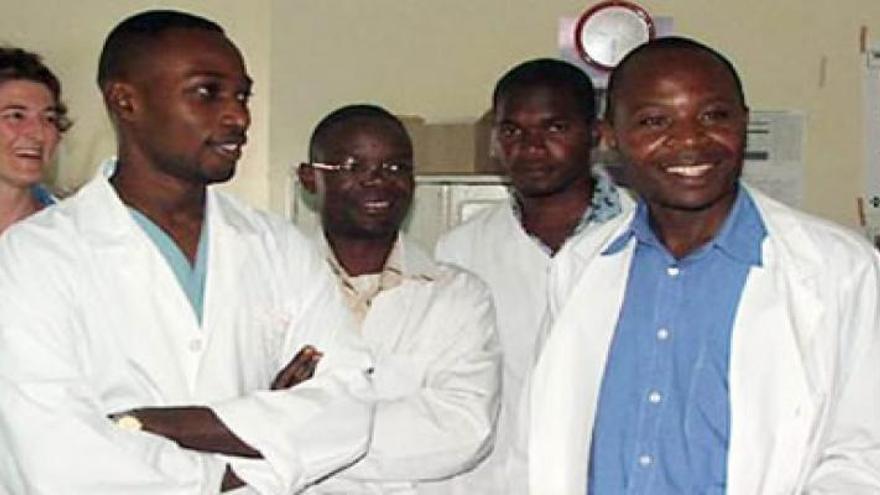
![]() 14ymedio, 14 May 2018 — Cuban Deputy Minister of Health Marcia Cobas, in charge of medical cooperation in third countries, is upset because the Government of Ghana has not paid for the one hundred Cuban doctors assigned to that African nation as of September.
14ymedio, 14 May 2018 — Cuban Deputy Minister of Health Marcia Cobas, in charge of medical cooperation in third countries, is upset because the Government of Ghana has not paid for the one hundred Cuban doctors assigned to that African nation as of September.
“It’s not fair,” Cobas said in a visit to Ghana, according to local media, which said she deplored the government’s attitude and said that even poorer countries, such as Chad, pay Cuban doctors on a regular basis. The island’s official press has not echoed the statements of the official.
Ghana’s debt for the services of the Cuban medical brigade amounts to 4.7 million dollars, according to the Ghanaweb site. This represents eight years of Cuban healthcare workers in Ghana. To date, only the doctors who are in Accra, the capital, continue to receive a salary from the government.
Last week the Cuban Ambassador in Ghana, Pedro L. Despaigne González, visited the headquarters of the Ghanaian Ministry of Health, where he was received by Deputy Minister of Health, Kingsley Aboagye-Gyedu. At the meeting, they discussed issues related to the Cuban medical mission, according to a brief official note from the Cuban Foreign Ministry.
Ghana, a country of 21 million located on the Gulf of Guinea, has been classified as one of the 40 poorest and most indebted nations on the planet. Although the poverty rate has been reduced to 28.5% of the population, life expectancy is only 55.4 years for men and 59.6 years for women, according to the World Health Organization.
The main causes of infant mortality include malaria, diarrhea and upper respiratory infection, as well as HIV infection, hypertension, diabetes mellitus and traffic crashes. The UN points out that the country has a high level of illiteracy and malnutrition and has high mortality rates.
Cuban specialists have been in the country since 1983. In 2016, Cuba signed a new health agreement with Ghana to send more doctors, while more than a thousand Ghanaians have graduated from Cuban universities, most of them in medicine.
Cuba has medical personnel deployed in 62 countries but does not provide data on the number of health professionals that are outside its borders, although in 2015 the number exceeded 50,000, according to the official press.
In recent weeks South Africa announced that it would reduce thethe number of medical students sent to Cuba, while other African countries signed cooperation agreements to bring specialists from the island despite the dissatisfaction of their local medical unions with that program.
The most recent statistics, published on the Cubadebate site, reported that the export of services is the largest source of income in the national economy, and contributed “an estimated 11.5 billion dollars as an annual average between 2011 and 2015,” according to the former minister of the Cuban Economy, José Luis Rodríguez, although that figure has fallen around 20% in the last two years because of the crisis in Venezuela.
_____________________________
The 14ymedio team is committed to serious journalism that reflects the reality of deep Cuba. Thank you for joining us on this long road. We invite you to continue supporting us, but this time by becoming a member of 14ymedio. Together we can continue to transform journalism in Cuba.
